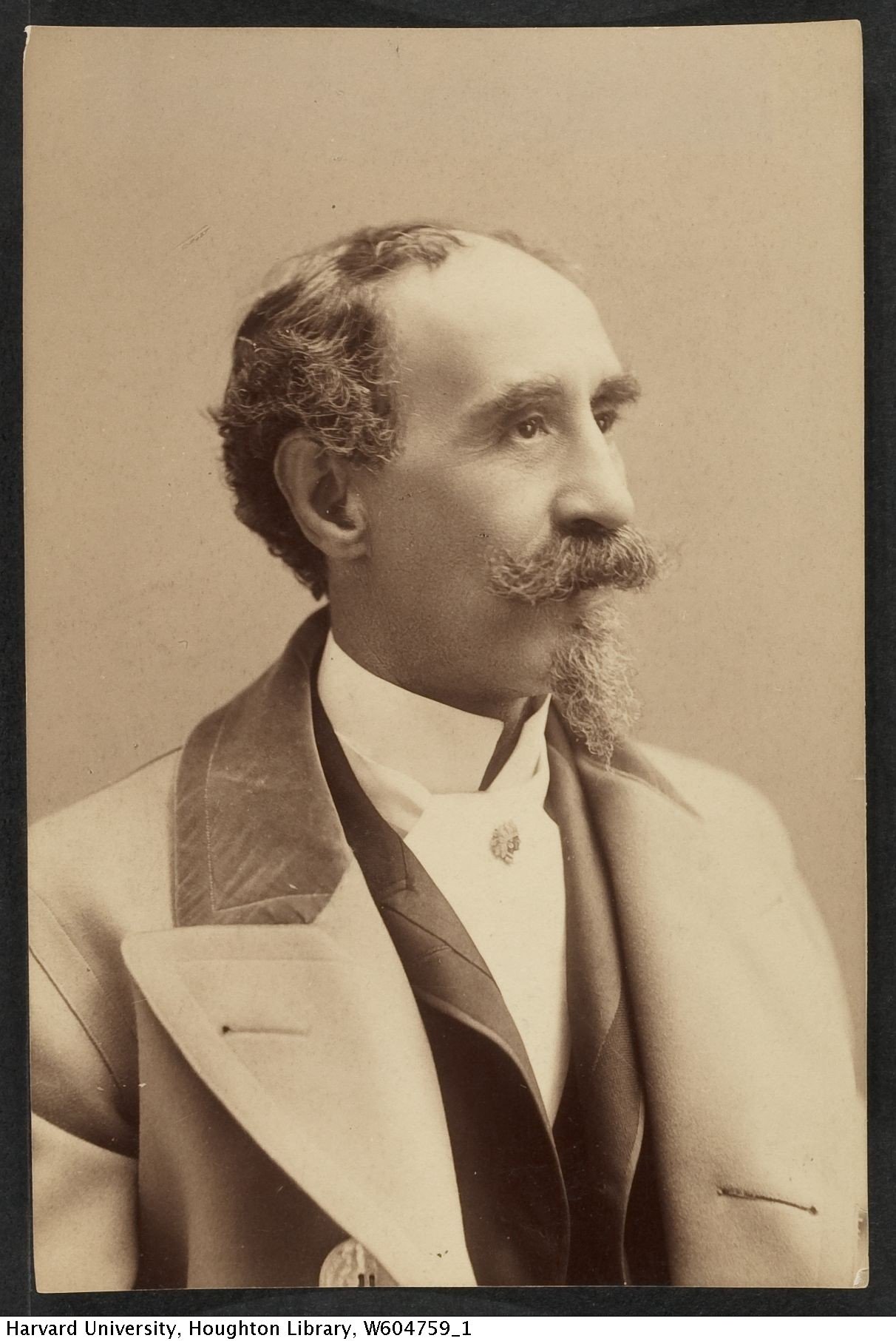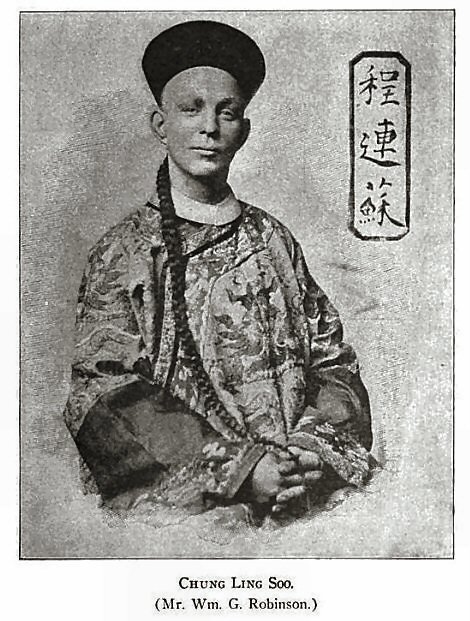
America’s First Great MAgician
By William Pack | Magician, Historian, and Educator, https://libraryprogramming.com/
By Photographer unidentified - TCS 1.317, Harvard Theatre Collection, Harvard University, Public Domain, https://commons.wikimedia.org/w/index.php?curid=33593183Alexander Herrmann
B. February 10, 1844 – D. December 17, 1896
In your mind's eye, imagine a magician standing in front of you. If you pictured a tall, slender man in a black tuxedo with tails and a top hat, mustache, and goatee, looking much like Mephistopheles—congratulations, you've just met Alexander Herrmann. He made so great an impression on the public that over 150 years later, he is the cliche magician.
Alexander Herrmann was born in Paris, the youngest of Samuel and Anna Sarah Herrmann's sixteen children. Samuel was a physician and itinerant magician of some renown. He wanted better for his children. He sent his oldest son, Compars (Carl), to medical school, but Carl had other ideas. He left school and started performing magic professionally.
Like many magicians of the time, Carl copied the great French magician Jean Eugene Robert-Houdin. He quickly developed his own character dominated by his continental style, sly sense of humor, and warm personality.
When Carl returned to his parents' home in Paris in 1853, he was thrilled to find out that his eight-year-old brother Alexander was already showing an interest in magic. Without his family's consent, Carl "kidnapped" his younger brother and took him to Saint Petersburg, Russia, to teach him the art of magic. Alexander was an eager and willing student. After touring places like Germany, Austria, Italy, and Portugal, their adventure ended in Vienna. Carl settled there and sent Alexander home to their parents in Paris. Alexander showed his father what he had learned from Carl. Samuel was so impressed with Alexander's skill that he decided to let him continue. Alexander stayed in Paris until he was about 11 years old; then, he returned to Vienna and Carl.
As Alexander's skills increased, he became a more integral part of Carl's show. Alexander was seventeen when they arrived in the United States in 1860. Audiences took notice of his abilities; his dexterity soon rivaled that of his famous brother. Jealousy brewed on that tour. Alexander was ready to go his own way.
Alexander began his independent career in 1862, and Carl returned to play the capitals of Europe. Alexander brought his own show to London's Egyptian Hall in 1871 and began a three-year stretch, which he called his "One Thousand and One Nights."
Alexander took on the Mephistophelian look his brother pioneered as he aged, but he developed his own distinct, magnetic personality. Carl's humor was sly, and he presented his magic in a mysterious manner. He was old-school magic. Alexander's performance style, on the other hand, was to interweave comedy with his magic. He was a humorist (almost a stand-up comic) who aimed to make his performances a joyous occasion. According to magic dealer and writer H. J. Burlingame, Alexander Herrmann's personality presented "an atmosphere of mystery about the magician." Burlingame also noted that Herrmann was one of the kindest and gentlest of men.
Alexander took on the Mephistophelian look
his brother pioneered as he aged,
but he developed his own distinct,
magnetic personality.
Alexander had learned the value of publicity stunts to promote his show. Once, while on London's Regent Street, he gathered a crowd. He stepped up to a gentleman and secretly stole his handkerchief. This got the attention of two police officers. A second man suddenly discovered that his watch was missing. He insisted that Herrmann took it. Alexander professed his innocence and asked the police officers to search him. They did not find the stolen items.
Herrmann then suggested that the two policemen should search themselves. The handkerchief was found on one of the officers, and the missing pocket watch on the other. Then, one of the police officers noticed his badge missing. They searched one of the original victims and found the missing badge. Herrmann smiled and said, "It seems that I am the only honest person here."
He tried in vain to explain to the police that the entire thing was just a magician's joke. "We will not be deceived in that way," the second cop said. So, they hauled him off to the police station. There, he was recognized and set free. The London papers got hold of the story and made it a sensation. The entire town was laughing at the practical joke Herrmann had played on London's finest.
In 1874, Alexander returned to America by boat. During the trip, he met a young dancer, Mademoiselle Adelaide Scarcez. The titian-haired, bilingual Adelaide had been planning to marry an American actor. By the time the ship docked, she had changed her mind. On March 27, 1875, the Mayor of New York performed the ceremony, marrying Alexander and Adelaide. Herrmann would not let a chance at getting good publicity pass. After the ceremony, he pretended not to have the money to pay. Then, he produced a roll of bills from the mayor's beard.
Throughout the 1870s and 1880s, Alexander (now billed as Herrmann the Great) and his wife Adelaide Herrmann performed together in elaborate stage shows. Adelaide was no mere assistant. She was an equal partner in the show.
By this point, Herrmann was the most beloved and famous magician in America and the world. On December 16, 1896, Herrmann was finishing a week's engagement at the Lyceum in Rochester, New York. That afternoon, the house was packed. Because the crowd was so enthusiastic and gave him many ovations, Herrmann extended the length of that final performance. While on board a train to the next performance, Herrmann suffered a heart attack. The train stopped in Ellicottville, New York. Alexander whispered to Adelaide, "Make sure all in the company get back to New York." The local doctor arrived a few moments later, but it was too late.
On December 17, 1896, at the age of 52, Herrmann the Great was pronounced dead. The front-page obituary that announced his death was the most extensive for a magician at the time.

